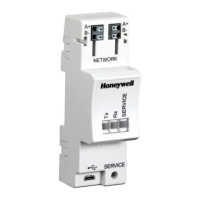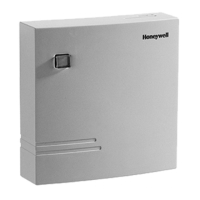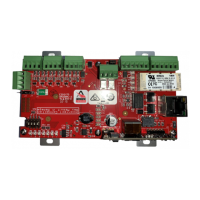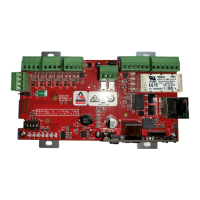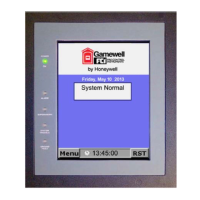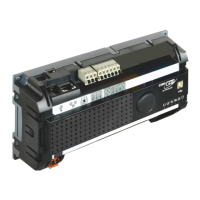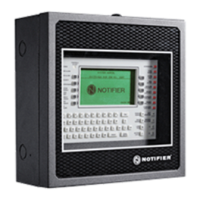Troubleshooting / Service
Troubleshooting Procedures
218 DR4500A Classic Series Circular Chart Recorder With or Without Control Product Manual Release L
February 2017
Table 9-16 Procedure #11—Troubleshooting the auxiliary output
How to do it or where to find the data
Be sure the controller is configured for
Auxiliary Output.
Refer to Subsection 3.15 – Auxiliary Output Set
Up Group. Make sure AUX OUT is enabled and
the correct parameter is chosen. Check the High
and Low Scale values.
Refer to Section 2 – Installation.
Use a milliammeter at connection J2 on the
Auxiliary Output printed circuit board to determine
the correct output based on your representation
of 4 mA and 20 mA.
Recalibrate the Auxiliary Output.
Refer to Subsection 8.4 – Auxiliary Output
Calibration.
Replace the Auxiliary Output printed
circuit board.
Refer to the instructions included with the
replacement part.
Table 9-17 Procedure #12—Troubleshooting external alarm function failure symptoms
How to do it or where to find the data
Be sure all the alarm configuration data
is correct.
Refer to Section 3 - Configuration.
Check the applicable alarm relay jumper
position.
Refer to Section 3 - Configuration.
Refer to Section 2 - Installation.
Check that the applicable alarm relay
actuates properly depending on ALARM
TYPE configuration selection.
Alarms can be triggered either by:
reconfiguring the value of the trip points
(AnSnVAL), or
connecting a signal generator to the input
and setting the generator level beyond the
trip-point values.
Table 9-18 Procedure #13—Troubleshooting Modbus communications failure symptoms
How to do it or where to find the data
Check the field wiring and termination
resistor.
Refer to Figure 2-21 in Section 2 – Installation in
this manual.
Make sure the Modbus Communications
board is properly installed in the
recorder.
Open the recorder door and chart plate, and
inspect the board. Refer to Figure 10-4 for
location of the board.
Refer to Modbus Communications manuals
51-52-25-66 and 51-52-25-69 for loopback
information.
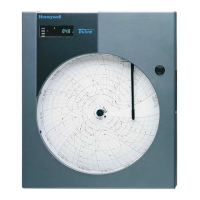
